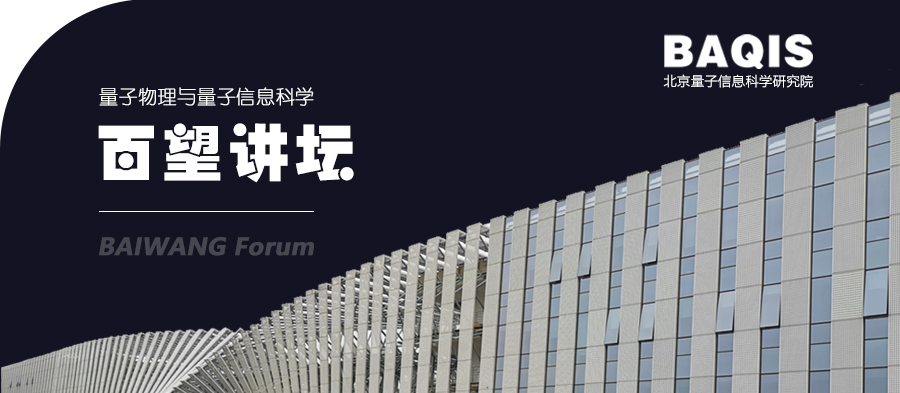Baiwang Forum 68: Identifying Material Defects in Quantum Circuits
2025/02/13

Prof. Alexey Ustinov is invited through "Distinguished International Visiting Scholar Program" to visit BAQIS and give a talk at Baiwang Forum.
【Date and Time】19-February-2025 2pm (Beijing time)
【Venue】Room 526
【Host】 Fei Yan ( BAQIS)
【Title】Identifying Material Defects in Quantum Circuits
【About the Speaker】
Alexey Ustinovis professor of experimental physics at the Karlsruhe Institute of Technology (KIT) in Germany. He was associate professor of experimental condensed matter physics at the University of Erlangen-Nuremberg between 1996 and 2008. Before that, between 1989 and 1996, he worked at various universities and research laboratories in Germany, Denmark, and Italy. Alexey received a Ph.D. degree in physics and mathematics in 1987 and a doctor of science degree in 1995 from the Institute of Solid State Physics of the Russian Academy of Sciences. He also served as a member of the Scientific Advisory Board of the Russian Quantum Center and led the Laboratory for Superconducting Quantum Technologies at the National University of Science and Technology in Moscow. Awards received by Alexey Ustinov include the Alexander von Humboldt Fellowship (1989), the Stefanos Pnevmatikos International Award for Research in Nonlinear Science (1998), Mega-Grant of the Russian Federation (2011), Google Faculty Award (2017), ERC Advanced Grant (2022). Alexey Ustinov has published over 300 research papers in peer-reviewed journals, supervised over 30 Ph.D. dissertations and numerous undergraduate student projects. Major scientific contributions of Alexey Ustinov are in the areas of low temperature physics, superconductivity, Josephson junctions arrays, nonlinear dynamics and solitons, and superconducting quantum circuits.
【Abstract】
Material defects are currently recognized to be the main source of decoherence in superconducting circuits employed for modern quantum computers. In structurally disordered solids, atoms or groups of atoms are able to quantum mechanically tunnel between two nearly equivalent sites. These atomic tunnelling systems have been previously identified as the cause of various low-temperature anomalies of bulk glasses and as a source of decoherence of quantum circuits where they are sparsely present in the disordered oxide barriers and on the surfaces of superconducting thin films. A tiny mechanical deformation of the circuit changes the energies of the atomic tunnelling systems, which can be extracted from the microwave spectra of superconducting qubits and resonators. Tuning the properties of individual defects by applying mechanical strain and/or external electrical fields allow to study spectral properties, intrinsic relaxation and dephasing times, and detect mutual interactions between defects. Progress towards reliable large-scale quantum processors requires prevention of defects by improvements in device fabrication. On the other hand, quantum circuits also provide a novel and effective method for studying the physics of individual defects and origins of noise which limit circuit operation.
 中文
中文 Email
Email QCloud
QCloud Log in
Log in
